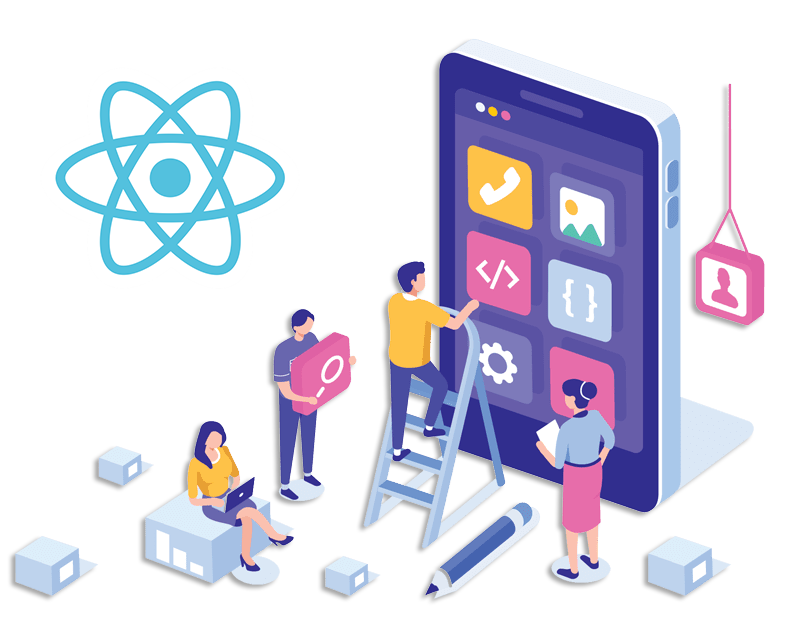In the ever-evolving world of mobile app development, React Native has emerged as a game-changer. Its ability to create high-performance, cross-platform applications with a single codebase has made it a favorite among developers. But what does the future hold for React Native? Let's explore some of the upcoming trends that are set to shape the future of React Native app development.
IoT and Cloud Integration
The integration of Internet of Things (IoT) and cloud technologies with React Native is expected to revolutionize app development. With IoT, apps can interact with smart devices, while cloud integration allows for scalable, flexible, and cost-effective app development. For example, a React Native app could control smart home devices or access data stored in the cloud.
AI and Machine Learning
Artificial Intelligence (AI) and Machine Learning (ML) are becoming increasingly important in app development. React Native developers can leverage these technologies to create intelligent apps that can learn from user behavior and make predictions. For instance, a React Native shopping app could use ML algorithms to recommend products based on a user's past purchases.
5G Networks
The advent of 5G networks promises faster data speeds and lower latency. This will enable React Native developers to create more complex and data-intensive apps. Imagine a React Native video streaming app that can stream high-definition videos without buffering, thanks to 5G.
Mobile Commerce
Mobile commerce is another area where React Native is set to make a big impact. With its ability to create seamless and engaging user experiences, React Native is ideal for developing e-commerce apps. A React Native app could offer features like one-click purchasing, personalized recommendations, and augmented reality shopping experiences.
Wearables
The popularity of wearable devices like smartwatches and fitness trackers is on the rise. React Native's ability to create apps for multiple platforms makes it a great choice for developing apps for these devices. A React Native fitness app, for example, could sync data between a user's smartphone and their fitness tracker.
Beacon Technology
Beacon technology, which uses Bluetooth signals to provide location-based services, is becoming increasingly popular. React Native developers can use this technology to create apps that offer personalized and context-aware experiences. For example, a React Native museum app could provide information about exhibits when a user is nearby.
Advances in AR/VR Technologies
Augmented Reality (AR) and Virtual Reality (VR) technologies are set to transform the way we interact with apps. React Native developers can leverage these technologies to create immersive experiences. Imagine a React Native gaming app that uses AR to superimpose game elements onto the real world.
PWAs and Instant Apps
Progressive Web Apps (PWAs) and Instant Apps allow users to use apps without downloading them. React Native developers can use these technologies to reach users who are reluctant to download new apps. A React Native news app, for instance, could be accessed instantly from a web browser.
Cross-Platform Development
React Native's ability to create apps for both iOS and Android with a single codebase is one of its biggest strengths. This trend is set to continue, with React Native developers able to reach a wider audience with less effort.
Security in App Development
With the increasing amount of sensitive data handled by apps, security in app development is more important than ever. React Native developers will need to focus on creating secure apps that protect user data.
Low-Code Development
Low-code development platforms enable developers to create apps with minimal hand-coding. React Native's component-based architecture makes it a good fit for this trend. Developers can reuse components across different parts of an app, speeding up the development process.
Voice Recognition
With the rise of digital assistants like Siri and Alexa, voice recognition is becoming a key feature in many apps. React Native developers can integrate voice recognition into their apps, allowing users to interact with the app using voice commands.
Conclusion
In conclusion, the future of React Native app development is not just promising, but also exciting. The integration of advanced technologies like IoT, AI, ML, AR/VR, and 5G will open up new possibilities and opportunities for developers. The emphasis on security and trustworthiness will ensure that the apps of the future are not just innovative, but also safe and reliable. As we move forward, it's clear that React Native will continue to play a pivotal role in shaping the future of mobile app development. The key for developers is to stay updated with these trends and continue to innovate, ensuring they are ready to leverage these advancements to create apps that are not just functional, but also engaging and user-friendly. The future is here, and with React Native, we are all equipped to meet it head-on.
Happy coding!

